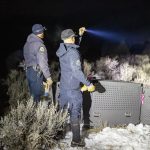Federal judge in Colorado denies Vail Resorts’ motion to dismiss labor lawsuits

Jon Resnick | Vail Resorts
While Vail Resorts awaits a final settlement hearing on a class-action lawsuit in California state court, a federal judge in Colorado has denied the company’s efforts to have other cases dismissed.
The California case includes 9,498 current and former Vail Resorts employees who consented to join the lawsuit following an effort to reach a class of 103,383 people who could have been eligible. Another 1,517 people opted out, according to documents supplied to the court (although several people have come forward saying they attempted to opt out and weren’t added to the list.)
Those who opted out of the California state court case have the option to join the federal case being carried out in Colorado.
Attorney Ed Dietrich, while taking the lead on the federal case in Colorado, filed objections to the settlement in the case (known as “Hamilton”) pending in California Superior Court on behalf of the named plaintiffs in the Colorado action and members of the class. Those objections were heard during a settlement hearing on June 17.
One objector said the company only pays a few hours of a shift which requires workers to be present for much longer and doesn’t reimburse for the new gear it requires workers to have.

Support Local Journalism
Dietrich, speaking on behalf of other objectors, said the average settlement check for most class members won’t cover the new gloves they’ll need to do their jobs next season.
“It just isn’t a meaningful recovery to the class,” he said.
Dietrich also said if the people who received notices for the California settlement agreement had also been notified that they had the option of joining the ongoing federal case in Colorado, there would have been a lot more people opting out of the California case, knowing they had another option in federal court in Colorado.
“How this case came to this (California state) court, I still haven’t gotten an explanation,” Dietrich said at the June 17 hearing in Lake Tahoe. “We were litigating the case in federal court, in Denver, where we have general jurisdiction over the company, that’s where they’re headquartered.”
But Vail Resorts, in that case, had filed a motion to partially dismiss in 2021, arguing that the plaintiffs were pursuing state law claims in other states besides Colorado, when the named plaintiffs on the case have only worked in Colorado.
The plaintiffs argued that any Vail Resorts employee in the U.S. has standing to assert a federal labor standards act claim in federal court.
On July 8, United States District Judge Daniel D. Domenico issued an order denying without prejudice Vail Resorts’ partial motion to dismiss.
Domenico, in the order, said there’s a strong chance the named plaintiffs, although employed in and governed by the laws of Colorado, may assert other state law claims for unnamed members of the class even though the named plaintiffs did not work in those states.
But that should be worked out under class certification proceedings, not in response to a motion to dismiss, Domenico said in the July 8 ruling.
“If and when a class is defined and certified, it will be appropriate to determine whether the complaint states a claim under any particular state’s laws,” Domenico said. “But because Plaintiffs have not yet moved for Federal Rule of Civil of Procedure 23 class certification, it is premature for me to determine whether they have plausibly stated claims under non-Colorado laws. The motion thus is denied without prejudice. … It is further ordered that, consistent with the requirement of Federal Rule of Civil Procedure Rule 23(c) that a Court must determine whether to certify a class at an early practicable time, Plaintiffs must file their motions for an order to preliminarily certify the class and for an order to disseminate within thirty days of today.”










